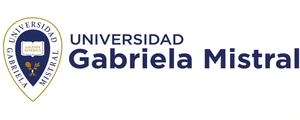Gabriela Mistral University Repository
The Gabriela Mistral University Library has developed the following Academic Repository in order to preserve, disseminate and make available the full-text contents of the academic production developed by the different actors in the academic and research field of the University.
The UGM University at the beginning of the year 2017 incorporated the UCINF University, also adding that collection where we find memories, theses, degree works, academic magazines, speeches, books, digital and sound files. Contact: [email protected]
The UGM University at the beginning of the year 2017 incorporated the UCINF University, also adding that collection where we find memories, theses, degree works, academic magazines, speeches, books, digital and sound files. Contact: [email protected]
Inmanencia y Trascendencia en Juan Escoto Eriúgena
| dc.contributor.author | Marenghi, Claudio | |
| dc.date.accessioned | 2021-02-15T15:32:21Z | |
| dc.date.available | 2021-02-15T15:32:21Z | |
| dc.date.issued | 2020 | |
| dc.identifier.citation | Revista Chilena de Estudios Medievales Número 18, julio - diciembre 2020, pp: 20 - 28 | es_ES |
| dc.identifier.issn | 0719-689X | |
| dc.identifier.uri | http://repositorio.ugm.cl/handle/20.500.12743/2049 | |
| dc.description.abstract | En el presente trabajo nos proponemos transitar la metafísica de Juan Escoto Eriúgena, par-tiendo de la noción que considera más adecuada para nombrar la totalidad de las cosas: el término latino ‘natura’. Abordaremos la cuádruple distinción que se establece a partir de esta noción en su obra ‘De divisione naturae’, en la que se resume el proceso por el cual todo sale de Dios y todo termina volviendo a Dios. Intentaremos mostrar el modo en que la doctrina del Eriúgena oscila entre una concepción inmanente de Dios en el mundo basada en la vía catafática y una concepción trascendente de Dios respecto del mundo fundada en la vía apo-fática, estableciendo una tensión dialéctica que no logra resolverse por carecer el autor de una adecuada comprensión de la participación ontológica y de la analogía en la predicación lógica. | es_ES |
| dc.description.abstract | In this paper we intend to explore the metaphysics of Juan Escoto Eriúgena, starting from the notion that he considers most adequate to name the totality of things: the Latin term ‘natura’. We will address the fourfold distinction that is established from this notion in his work ‘De divisione naturae’, which summarizes the process by which everything leaves God and every-thing ends up returning to God. We will try to show the way in which the doctrine of Eriúgena oscillates between an immanent conception of God in the world based on the cataphatic way and a transcendent conception of God with respect to the world based on the apophatic way, establishing a dialectical tension that cannot be resolved due to lack of the author of an adequate understanding of ontological participation and analogy in logical predication. Keywords: Juan Escoto Eriúgena, God, world, immanence, transcendence | |
| dc.description.sponsorship | Universidad Gabriela Mistral - Centro de Estudios Medievales | es_ES |
| dc.language.iso | es | es_ES |
| dc.publisher | Universidad Gabriela Mistral | es_ES |
| dc.rights | Attribution-NonCommercial-NoDerivs 3.0 United States | * |
| dc.rights.uri | http://creativecommons.org/licenses/by-nc-nd/3.0/us/ | * |
| dc.subject | Juan Escoto Eriúgena | es_ES |
| dc.subject | Dios | es_ES |
| dc.subject | Mundo | es_ES |
| dc.subject | Inmanencia | es_ES |
| dc.subject | Trascendencia | es_ES |
| dc.title | Inmanencia y Trascendencia en Juan Escoto Eriúgena | es_ES |
| dc.title.alternative | Immanence and Transcendence in Juan Escoto Eriúgena | es_ES |
| dc.type | Article | es_ES |



